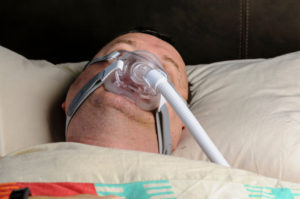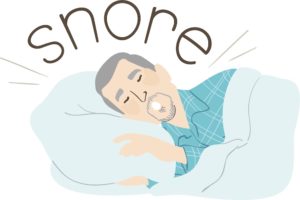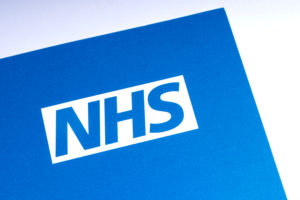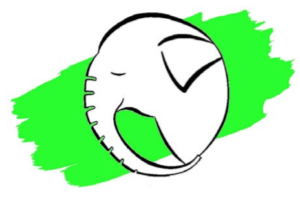 Obstructive Sleep Apnoea (OSA)
Obstructive Sleep Apnoea (OSA)
We know that a number of beneficiaries have Sleep Apnoea which can leave someone feeling fatigued even after a seemingly good nights sleep.
Dr Susan Brennan explains this condition, what causes it and the treatments that can help.
What is Sleep Apnoea?
When you go to sleep at night, the muscles around your throat relax and this is a normal process, but sometimes this can cause the airway to narrow and that’s why people snore.
In Obstructive Sleep Apnoea (OSA), the narrowing goes one step further causing the airway to temporarily close (this is the “obstruction” part of the OSA name). This obstruction causes a pause in your breathing. This pause is called an 'apnoea' and happens when you are sleep, hence the name 'Obstructive Sleep Apnoea’. During this pause the oxygen flow to the brain is temporarily interrupted.
If you have severe Sleep Apnoea, this interruption in your breathing can occur multiple times in the night and leaves you feeling exhausted the next day.
Are thalidomide survivors more likely to get Sleep Apnoea?
We don’t know for sure if thalidomide survivors are more likely to get Sleep Apnoea than the general population. It has been mooted that thalidomide survivors maybe more at risk of Sleep Apnoea as they may have some anatomical changes (changes in the structure of the face) such as jaw and nose differences.
In addition, thalidomide survivors are more likely to have risk factors for OSA such as being overweight and being more likely to drink and smoke. It is also worth pointing out that as you are in your late 50s/early 60s, you are at the age where Sleep Apnoea is more likely to present.
What symptoms does Sleep Apnoea cause?
 You, or your partner, may notice that you snore. In addition, your partner may notice there are pauses in your breathing at night-breathing often restarts with a gasp or grunt and some jerky body movements.
You, or your partner, may notice that you snore. In addition, your partner may notice there are pauses in your breathing at night-breathing often restarts with a gasp or grunt and some jerky body movements.
The odd solitary pause in breathing in the night can be normal but in OSA you get frequent pauses throughout the night. You probably won’t remember these pauses the next day, but you will feel tired.
Sleep Apnoea causes daytime sleepiness and fatigue and a feeling of not being refreshed when you wake up, even if you been to bed for hours. In addition, you may find it harder to concentrate or feel irritable the next day. Some people often report morning headaches too.
What should I do if I think I’ve got Sleep Apnoea?
If you are worried you have some of the symptoms of Sleep Apnoea, you can complete the Epworth Sleepiness Scale questionnaire and take this along to your GP where you can describe your symptoms in more detail.
Getting your partner to video the pauses on a smart phone can also be helpful for the GP.
What happens next?
If your GP feels you may have Sleep Apnoea, they may refer you to a Sleep Clinic. There you will be admitted overnight for further tests and investigations and to measure you oxygen levels while you sleep.
What is the treatment for Sleep Apnoea?
There are some lifestyle things that can help such as reducing weight, stopping smoking and reducing alcohol.
The treatment for Sleep Apnoea is something called CPAP. CPAP stands for Continuous Positive Airway Pressure and involves wearing a mask at night which pumps air into your airways at a slight pressure. This keeps the airways open and prevents their collapse. Most people feel an immediate improvement in their symptoms of Sleep Apnoea when they start using CPAP but it can take a little while to get used to the mask, which can feel claustrophobic at first.
There are different types of masks available. There are even custom masks you can get made. This might need to be considered if your face or jaw is an unusual shape.
In addition, those of you with short or no arms may need assistance in getting the mask on and off.
Goeff Spink and Ramesh Ladd use these masks and have produced videos showing how they fit their masks unaided in order to help others.
Do I need to let the DVLA know?
If you drive and have Sleep Apnoea, you will need to inform the Driver and Vehicle Licensing Agency (DVLA) if you have symptoms of day time sleepiness.
More information and guidance can be found on the Sleep Apnoea Trust website
How Can the Trust help?
Some private companies overseas make custom fit CPAP facemasks. Please contact the Trust if you would like any help with this or advice on Sleep Apnoea on 01480 474074 or email.
Further information


